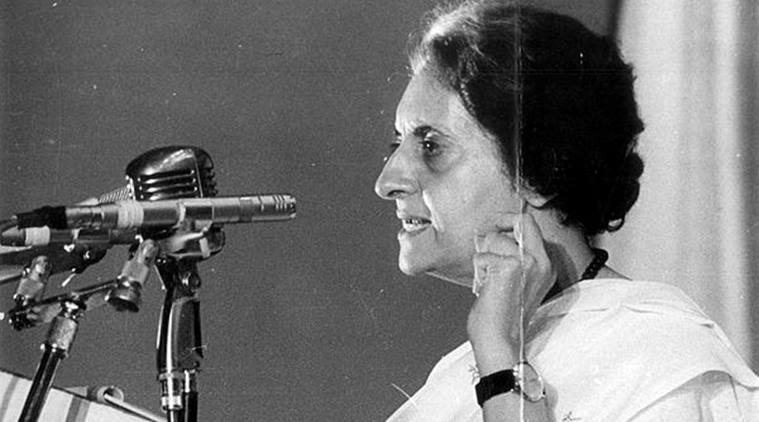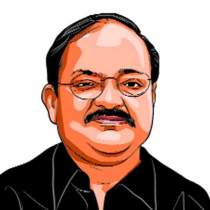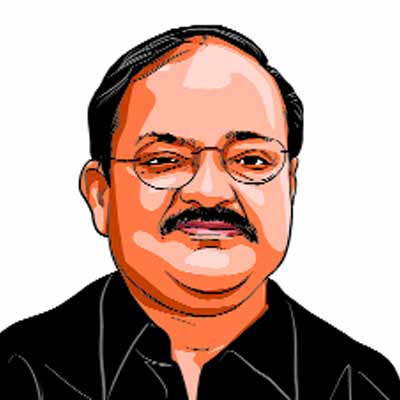Lessons from dark times
Remembering Emergency: The people must stay at the forefront of protecting democracy.

As per the Constitution, the President can declare Emergency only on the recommendation of the Union cabinet. (Express archive photo)
“When I despair, I remember that all through history the way of truth and love has always won. There have been tyrants and murderers and for a time they seem invincible, but in the end, they always fall…” said the apostle of peace, Mahatma Gandhi.
These prophetic words came true more than four decades ago when the people of India rose against a tyrannical onslaught on the foundational principles of Indian democracy. Dissent and disagreement were replaced with suppression and sycophancy as an atmosphere akin to a totalitarian regime became the order of the day for 21 months.
The darkest chapter in modern India’s history unfolded on June 25, 1975, when President Fakhruddin Ali Ahmed proclaimed Emergency under Article 352 of the Constitution on the grounds that “the security of India is threatened by internal disturbance”. As per the Constitution, the President can declare Emergency only on the recommendation of the Union cabinet, However, the then Prime Minister Indira Gandhi, without consulting her cabinet, recommended its imposition and the cabinet had ratified the decision the next day. In other words, it was a fait accompli for the Cabinet although one minister was believed to have expressed reservations.
To prevent any attempt to throttle democracy on the grounds of internal disturbance, the Janata Party government had carried out the 44th Amendment in 1978. As a result, the President can declare Emergency only due to external aggression and the condition of “internal disturbance” was replaced with armed rebellion. The President’s proclamation has to be approved by both the houses of Parliament within a month.
The imposition of Emergency in 1975 was preceded by a widespread anti-corruption movement in Gujarat, popularly known as Nav Nirman Andolan. It led to the resignation of the then Gujarat Chief Minister Chimanbhai Patel and eventually to the dissolution of the Assembly. Around the same time, a students’ agitation gathered momentum against corrupt rule in Bihar, even as people in the rest of the country became increasingly resentful of soaring prices and corruption. Veteran socialist leader, J P Narayan, gave a call for “Sampoorna Kranti”. JP became the messiah of the masses.
Less than a fortnight before the proclamation of Emergency, Justice Jagmohanlal Sinha of the Allahabad High Court had set aside the election of Mrs Gandhi for electoral malpractices and barred her from contesting elections for six years. He, however, stayed the order for 20 days to allow Mrs Gandhi to file an appeal. After her appeal was admitted in the Supreme Court, Justice V R Krishna Iyer granted a conditional stay on June 24 and held that Mrs Gandhi cannot participate in debates or vote as an MP. He referred the issue to a larger bench. The very next day, a massive public meeting was addressed by JP at Ramlila Grounds demanding Mrs Gandhi’s resignation. Although there was no major incident anywhere in the country on the law and order front, Emergency was imposed on June 25.
Top political leaders, including JP, Morarji Desai, A B Vajpayee, L K Advani, Madhu Dandavate, Ramakrishna Hegde, Chandrashekhar, Charan Singh, Nanaji Deshmukh, Deve Gowda, Nitish Kumar and several RSS leaders were arrested without any charge in midnight swoops. Thousands of others were detained either under the draconian MISA (Maintenance of Internal Security Act) or DIR (Defence of India Rules).
People in India and rest of the world were stunned by the unprecedented developments as fundamental rights were suspended, judiciary was superseded, various organisations were banned, forcible sterilisations were carried out and thousands were brutally tortured.
Although a number of journalists met at the Delhi Press Club and passed a resolution condemning promulgation of Emergency, the media by and large meekly surrendered to the censor, barring a few honourable exceptions like the fearless Ramnath Goenka’s The Indian Express, The Statesman and Mainstream. Well-known journalist, Kuldip Nayyar was among those arrested. The government categorised the media as friendly, hostile and neutral and gave advertisements to only friendly publications. This attitude of the media was later famously described by L K Advani, who said that the press crawled when it was asked to bend.
Sweeping constitutional amendments were carried out like the 39th amendment which prohibited SC from hearing election petitions and the 42nd amendment, which declared that any amendment to the Constitution cannot be questioned in any court. Even the tenure of legislatures was extended to six years.
However, all the attempts to throttle democracy came to naught. The people rose like a tidal wave and voted the Janata Party to power and the government headed by Morarji Desai was sworn in. It nullified some of the black laws legislated during the Emergency. The Shah Commission appointed to probe into the excesses committed during the Emergency concluded that its imposition was totally unwarranted.
I was incarcerated during the Emergency for 17-and-half months under MISA for having invited JP to address the students at Andhra University, where I was studying. As an ABVP activist, I was acting as an underground courier for the states of AP, Tamil Nadu and Karnataka. Initially, I was lodged in Visakhapatnam jail and later shifted to Musheerabad jail in Hyderabad.
I have recounted the dark deeds of the Emergency to remind the people, especially the younger generation, to always be at the forefront of strengthening democracy.
An important lesson taught by Emergency is that the people of India, although peace-loving, will never tolerate authoritarianism. The fact that people have peacefully overthrown a despotic regime not only showed the maturity of the Indian electorate but also the resilience of India’s Parliamentary democracy. Freedom is the lifeline of democracy and any stifling will sound the death knell of the rights guaranteed under the Constitution.
The writer is Vice President of India.
For all the latest Opinion News, download Indian Express App
More From M Venkaiah Naidu
- A new TRP philosophyRights and responsibilities must be harmonised for the sake of democracy. It would be appropriate for the media to dedicate itself to the promotion of…
- Healthy India, happy IndiaOn World Health Day, government must redouble efforts to provide quality healthcare, people must make lifestyle changes...
- Speaking in my own tongueA multilingual and multicultural world will be possible only by strengthening individual mother languages...








































No hay comentarios:
Publicar un comentario